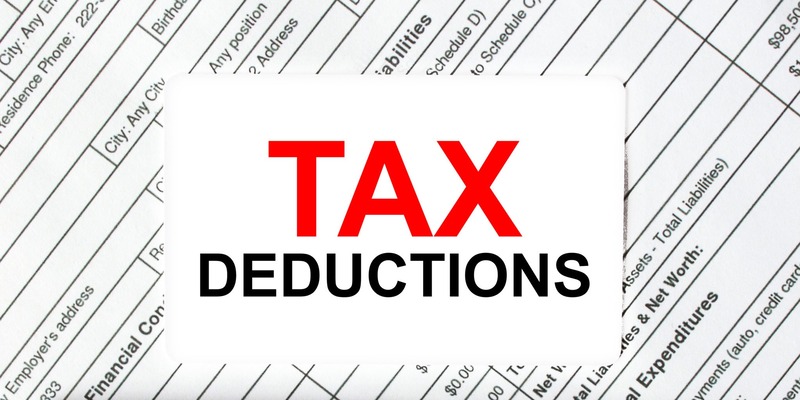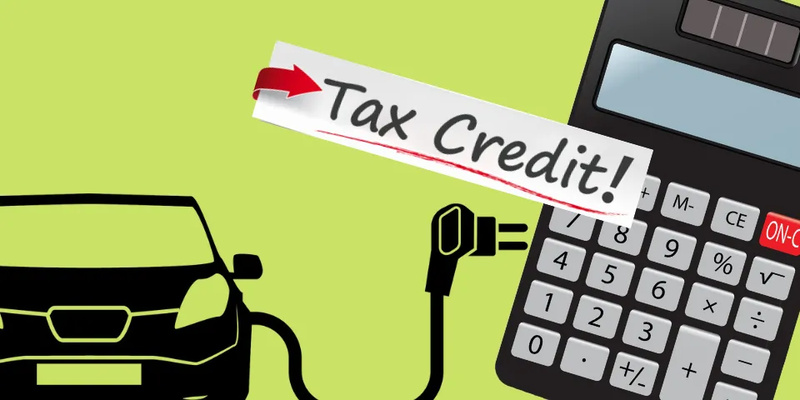How to Determine If Buying a Car Qualifies for Tax Deductions
Advertisement
Purchasing a car is big spending, and lots of people aim to lessen the money they need via tax benefits. Commonly, buying a normal car for individual use does not get you any tax cut but there are certain situations when it can give some kind of advantage on taxes. This usually happens if the vehicle will be used for business purposes or in cases where the government gives incentive programs like electric vehicles or even sales taxation deductions that fit under specific terms and conditions. This article will look at the important elements that decide if buying a car is deductible for tax and it clarifies how different deductions and credits work.
Using a Car for Business and Tax Deduction Eligibility
A vehicle bought solely for business work can qualify to decrease your taxes. The Internal Revenue Service (IRS) permits people who own businesses, work for themselves, and are independent contractors to subtract the cost of a business car under specific conditions. This subtraction is possible based upon how much it's used for commercial use, meaning if this particular automobile has been employed 70% of the time for official matters while 30% belonged towards personal uses then only expenses equal to that seventy percent are acceptable as deductible costs.

To reduce the cost of vehicle use, there are two main ways: using a standard mileage rate and an actual expense system. The standard mileage method calculates deduction based on how much you drive for your job. On the other hand, with the actual expenses strategy, one can subtract fuel costs from their taxes as well as maintenance fees, insurance payments, registration charges, and even decreases in value over time (depreciation). To find out which approach gives more tax benefits to them, people paying taxes should do calculations for both methods and then pick out what proves the most useful option. But, if you make use of the standard mileage rate in business first year, it's not permitted to change later to the actual expense method.
Section 179 and Bonus Depreciation for Business Vehicles
The IRS allows to deduction of part of the cost of buying a vehicle as per Section 179, which gives business owners the freedom to write off qualifying business assets. For cars, there's a limit on deduction under this section and these vehicles should be used at least half the time for your business purposes to qualify. Next to Section 179, bonus depreciation offers extra deductions for some vehicles; it could further decrease taxable income. The whole deduction is limited per year, and persons who pay taxes have to follow the rules of the IRS when they are asking for these deductions.
Big lorries and trucks with a weight of more than 6,000 pounds can be eligible for higher deduction limits as per Section 179. This makes certain commercial trucks and SUVs appealing to business owners who want tax relief. However, the personal use of these vehicles should be reduced to a minimum and proper records should be maintained to support this deduction if there's an audit.
Tax Benefits for Ride-Share and Delivery Drivers
The growth of the gig economy has caused a rise in drivers who are self-employed and use their cars for work. Drivers working for ride-share services like Uber, and Lyft, or delivery companies such as Amazon Flex, DoorDash, and others can be eligible to get tax deductions that concern vehicle costs. These people should keep a record of the miles they drive along with business-related expenditures so they correctly claim these deductions.
As ride-share and delivery drivers are seen as independent contractors, not employees, they must report income and expenses on their tax returns. The IRS permits these drivers to subtract vehicle costs based on how much they use the car for business purposes; this operates under either the standard mileage or actual expense methods that other owners of business vehicles can also access. It's very important to maintain detailed records about miles driven when working, cost of fuel used, and upkeep of the vehicle to increase deductions maximumly possible.
Deductions for Vehicle Purchase Taxes and Loan Interest
Some taxes and charges linked to buying a vehicle can be possibly subtracted under certain situations. The amount of sales tax given for a car could be deducted if the individual paying taxes elects to detail deductions rather than taking the typical deduction. Despite this, those who pay tax have to choose between deducting state and local income taxes or state and local sales taxes because it's not allowed by law for both to be claimed in the same year of paying tax. This deduction applies to both individual and business vehicle purchases. However, it has a total deduction limit set by the IRS.
If a car is bought in finance and utilized for business activities, you may get a deduction from the interest paid on this loan. The part that can be deducted depends upon the amount of use for business purposes. If 60% of total usage pertains to your work, then only 60% of the ended interest cost becomes deductible. For private individuals who are purchasing cars just for personal needs, there's no possibility to write off any such auto loan interests in their tax returns.
Tax Credits for Electric Vehicles and Plug-In Hybrids

Buying an electric car (EV) or a plug-in hybrid electric car (PHEV) might make you eligible for a tax credit instead of a deduction. A deduction lessens your taxable income, but a tax credit decreases the actual amount of tax that needs to be paid directly. The government at the federal level supplies up to $7,500 as tax credits for new EVs and PHEVs if they fulfill specific conditions; these rules have been modified with the introduction of the Inflation Reduction Act.
For getting the federal EV tax credit, there are conditions to be fulfilled by the vehicle related to its manufacturing and battery sourcing. Also, the income of the buyer should not be more than specific limits. If two persons file jointly, then their yearly earnings must stay below $300,000 whereas for a single person, this limit is $150,000. Additionally, it's possible that used EVs can also get a little bit less tax advantage to $4K if they fulfill extra criteria which includes a cost ceiling of $25K. The tax credit is obtainable either during tax filing or it can be handed over to the dealer when buying, which reduces the price of the vehicle.
State and Local Incentives for Electric Vehicles
Apart from the tax credits provided by federal authorities, a lot of states present more benefits when buying an electric vehicle. They might come in the form of rebates, tax credits, or lower registration costs.
Certain states have designed specific incentives for installing charging stations at home which can further increase the financial advantages of buying an EV. These incentives vary in different places, so people who want to buy should visit the websites of the state government to know if they can get it.
Record-Keeping and IRS Compliance
Appropriate paperwork is very important when you want to claim tax deductions linked with a vehicle buy. The IRS, asks people who pay taxes to keep evidence like receipts of purchases, statements about loan interest, logs for mileage, and detailed reports on expenses.
Those who have businesses and people who work for themselves also need to make sure that their use of a car follows instructions by the IRS so as not to fined or be audited. Digital apps created for following mileage and managing expenses can assist taxpayers in keeping precise records all year round.
Conclusion
If you buy a car, it could be possible to reduce your taxes depending on how the car is used and if it meets IRS rules for deductions or credits. People who own businesses, work independently, or are self-employed can claim tax cuts for cars that they use mostly for business work. They could do this by counting miles driven or real costs related to using their vehicle. Furthermore, those who purchase electric cars might qualify for federal and state tax benefits which lessen their total amount of taxes due. Knowing the principles for car tax savings and keeping the right records can aid people who pay taxes in getting the most out of their money, while at the same time following rules sethe t by the IRS.
On this page
Using a Car for Business and Tax Deduction Eligibility Section 179 and Bonus Depreciation for Business Vehicles Tax Benefits for Ride-Share and Delivery Drivers Deductions for Vehicle Purchase Taxes and Loan Interest Tax Credits for Electric Vehicles and Plug-In Hybrids State and Local Incentives for Electric Vehicles Record-Keeping and IRS Compliance ConclusionAdvertisement












